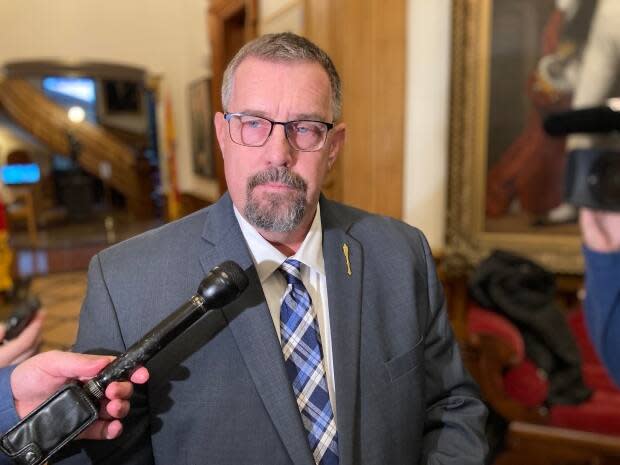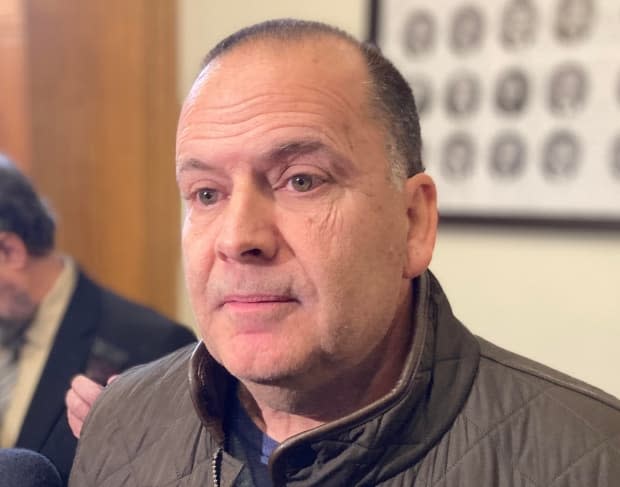Minister to take questions in livestream on modified immersion program

Education Minister Bill Hogan launches public consultations Monday night on how the New Brunswick government proposes teaching anglophone students how to speak French.
Hogan will begin with a livestream on the provincial government's YouTube channel, answering questions about the program sent by the public on social media.
Other consultation sessions are planned for Bathurst, Moncton, Saint John and Fredericton
Hogan announced on Dec. 15 that the redesign of the French second-language program will have all kindergarten and elementary students in anglophone schools spend half their days "in exploratory learning in French."
What does the new program look like?
This includes French immersion and non-French immersion students. The program will mean significantly less French for immersion students who are currently getting 80 to 90 per cent of their instruction in French, but more French instruction for non-immersion students.
With the new program, the percentage of instruction students will get in French will drop from 50 to 40 per cent when they reach grades 6 to 8 in middle school.

Students entering grades 2 to 12 in September who were already enrolled in French immersion can continue in that program through to high school graduation.
The change will take place at the start of the 2023 school year, with final details of the plan to be announced in the spring of this year, following the public consultations.
Feedback sessions, survey before final plan announced
Families with children in the Anglophone East school district received a letter on Friday with details about the consultation process.
Sessions will be from 6:30 p.m. to 8:30 p.m. in different locations across the province over the next few weeks.
Jan. 17 at the Gowan Brae Golf Club in Bathurst
Jan. 19 at the Delta Beauséjour in Moncton
Jan. 24 at the Delta Saint John
Jan. 25 at the Delta Fredericton
There will also be two virtual sessions — one on Jan. 31 and the other on Feb. 2.
In the letter from the Anglophone East district, families were also encouraged to fill out a 10-minute survey online from the New Brunswick government about the French second-language program.
Reactions varied
In October, Hogan's predecessor, Dominic Cardy, resigned from the cabinet of Blaine Higgs, accusing the premier of rushing a major reform that had been planned for 2024.
Hogan, however, said officials looked to experts, examined reports, reviews and research and talked to people.
The province has said it would need to launch a recruitment drive to find enough teachers who can teach French. Hogan said the system will need to find 60 teachers for the program for kindergarten and Grade 1 next fall.
Reactions to the program have varied.

Around two dozen anglophone schools across the province took part in "language learning opportunities," projects where they piloted new approaches to French education.
One student at Maplehurst Middle School, one of the schools piloting a new approach to French, found her French skills getting rustier, while another said she felt more motivated.
Since the announcement of the new framework for the French second-language program, Chris Collins, the executive director of Canadian Parents for French in New Brunswick, said 50 per cent of class time devoted to French would not be enough.
Liberal Leader Susan Holt agreed, saying the program wouldn't meet the needs for people who want their children to have access to public jobs in the future that require full bilingualism.
Collins also said after the announcement that he doesn't expect the public consultations to change anything.


